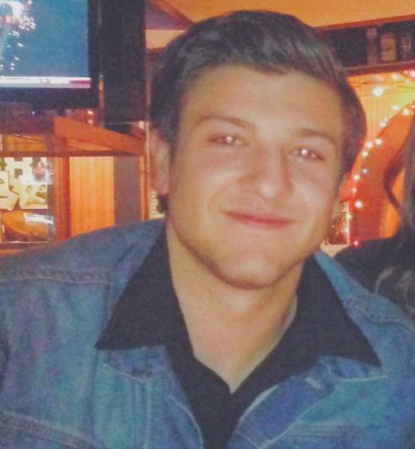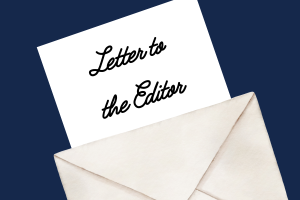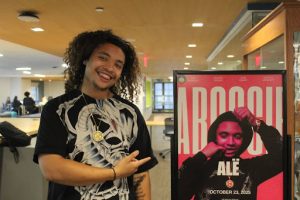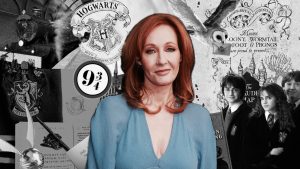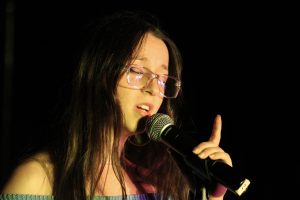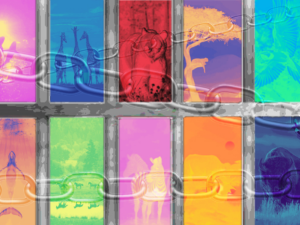Ford Hall Forum attempts to break Muslim stereotypes
April 13, 2016
Muslims have been increasingly targeted across the country. Whether in politics, the media, or on the streets, people practicing Islam lately deal with constant waves adversity. With presidential candidates’ increasing debate and verbal attacks on Muslim-Americans, anyone practicing Islam in the United States has a reasonable cause for concern.
The Muslim community recently took proactive steps to push against the fear they confronted with during the latest Ford Hall Forum installment: Modern Muslims in a Modern World.
The panel was made up of prominent Islamic practicing Bostonians who aimed to dispel common misconceptions about their religion and explain how they maintain normalcy in the face of America’s mounting Islamophobia.
Members of the panel included: founders of the “Ask a Muslim” public booth Mona Haydar and Sebastian Robins, public booth, Cambridge City Councilor Nadeem Mazen, and Master of Education candidate at Harvard, Sister Barbara Sahli. Reverend Amy L. Fisher, Suffolk University’s interfaith chaplain, moderated the event that took place in the Modern Theatre Thursday.
“I think that hardly anyone understands Islam unless they’re Islamic,” said Fisher in an interview with the Journal. “We, as non-Muslims, have very little knowledge about Islam and we wanted to take down that barrier and enter a religious dialogue to end some ignorance.”
Freshman accounting major and practicing Muslim Maryem Bakati was present in the audience. She recently met with the Journal to discuss the importance of events like this forum to better educate the public about practicing Islam.
“I think that this should be happening every two to three months because this is what’s happening to everyday Muslims,” she said. “Some people just don’t know, some people are just ignorant, not because they’re uneducated. They just don’t go out and find answer so their first choice is to hate”
Like Fisher and Bakati, members of the panel also held onto the notion that the perception of the American Muslim is often misconstrued.
“A lot of non-Muslim Americans think that Muslims are so different, alien, and they find it hard to believe that they can interact with America,” said Robins.
The speakers tackled the tough question of what it means to be a “modern Muslim” in regards to the turbulent political landscape that has unfolded across the world. As a current candidate for a Masters of Education degree at Harvard, Sahli, further highlighted the need for people to educate themselves independently.
“As a Muslim I think the biggest challenge I face is all the imagined ways that we are portrayed,” explained Sahli. “When you hear words like Muslim, terrorists, or Islamic extremism it registers in the receiver’s mind that this includes all Muslims and I think this is very dangerous.”
Islamophobia was a key topic in the discussion. They were asked to differentiate between fear, caused by terroristic violence, and bigotry. Both of these words had been used interchangeably, but have different meanings. According to the panel, fear is currently being used to disguise deep-rooted bigotry that has been an emerging topic of political debate.
“There’s definitely racism happening, there’s definitely bigotry, there’s also elements of fascism that crept in for the first time in a while,” said Mazen. “I want to say that the hawkish stances of many of our past presidents has been fascist, but you don’t know real fascism until a presidential candidate says we should round people up and control them in their neighborhoods.”
The night’s undisputed climax came during the open-ended question and answer portion of the forum, when an older gentlemen asked a question.
“You folks should do more to condemn the violence prevalent in your religion,” he said. “With regards to your Prophet, so called, can you tell me how it is that you worship someone who was a bloodthirsty, murdering, rampaging, genocidal maniac who slaughtered and destroyed anything that got in his way.”
The audience looked on in disbelief.
Robins, who runs the “Ask a Muslim” public booth with his wife Mona Hawdar, spoke up first, his voice quivering slightly.
“What you’re doing right now is exactly why we are here, as well as why the audience is here,” he said, slowly regaining a composed tone of voice.
The other panelists also chipped in, and confronted the man and spring-boarding the situation into a learning experience.
“People [who] have ridiculous, aggressive values, will be healed with communication and righteousness,” added Mazen. “It is not your place to ask us to do more, it is your place to continue to heal through dialogue and I can promise you that the way in which you are revealing your intentions will not heal anyone.”
Bakati, who was sitting only a few seats away from the man, recalled the fear that she felt in the face of his anger.
“Being there and being so close to the guy, it was scary. Imagine if he pulled my scarf or something. Just to face that, so close, was very terrifying,” she said. “The way they handled it was great, but imagine if this was a Christian panel with a Muslim person there. I think the police would have tackled him down on the right there…. But I’m kind of glad that he stayed and listened because maybe he could have changed his mind by the end of the day.”
The final question came from a young audience member in attendance. A fourth-grade girl was ushered by her mother to the microphone, standing on tiptoes so that she could properly speak into it. She wanted to know how she should address her classmates who may say derogatory things about Muslims. The panelists collectively agreed that this should be handled peacefully through dialogue. They advised her to explain to her classmates that these comments hurt everyone, not just Muslims. This concluded the forum on a relatively high note.


